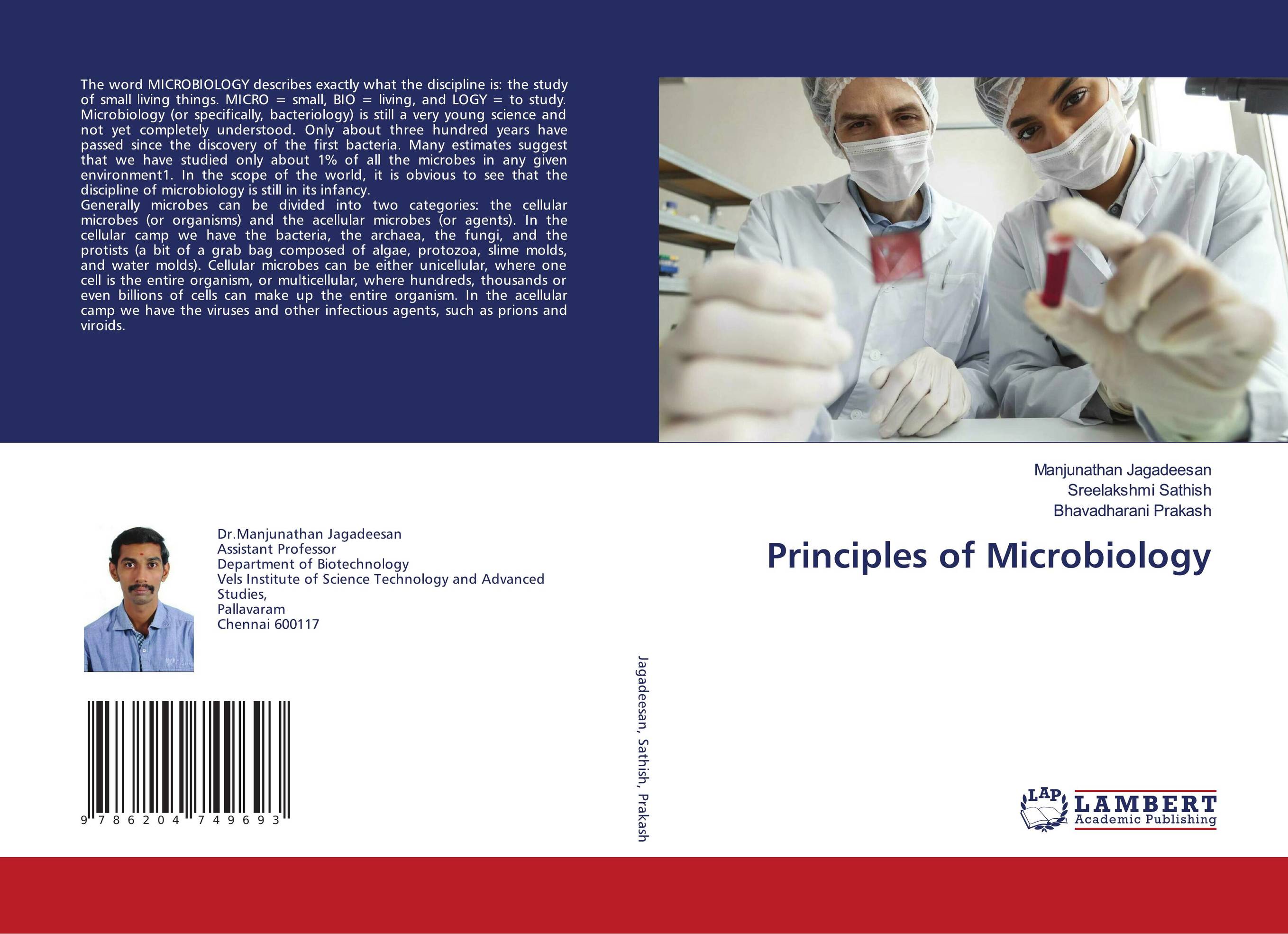| Поиск по каталогу |
|
(строгое соответствие)
|
- Профессиональная
- Научно-популярная
- Художественная
- Публицистика
- Детская
- Искусство
- Хобби, семья, дом
- Спорт
- Путеводители
- Блокноты, тетради, открытки
Principles of Microbiology.

В наличии
| Местонахождение: Алматы | Состояние экземпляра: новый |

Бумажная
версия
версия
Автор: Manjunathan Jagadeesan,Sreelakshmi Sathish and Bhavadharani Prakash
ISBN: 9786204749693
Год издания: 1905
Формат книги: 60×90/16 (145×215 мм)
Количество страниц: 120
Издательство: LAP LAMBERT Academic Publishing
Цена: 35503 тг
Положить в корзину
Позиции в рубрикаторе
Отрасли знаний:Код товара: 717921
| Способы доставки в город Алматы * комплектация (срок до отгрузки) не более 2 рабочих дней |
| Самовывоз из города Алматы (пункты самовывоза партнёра CDEK) |
| Курьерская доставка CDEK из города Москва |
| Доставка Почтой России из города Москва |
Аннотация: The word MICROBIOLOGY describes exactly what the discipline is: the study of small living things. MICRO = small, BIO = living, and LOGY = to study. Microbiology (or specifically, bacteriology) is still a very young science and not yet completely understood. Only about three hundred years have passed since the discovery of the first bacteria. Many estimates suggest that we have studied only about 1% of all the microbes in any given environment1. In the scope of the world, it is obvious to see that the discipline of microbiology is still in its infancy. Generally microbes can be divided into two categories: the cellular microbes (or organisms) and the acellular microbes (or agents). In the cellular camp we have the bacteria, the archaea, the fungi, and the protists (a bit of a grab bag composed of algae, protozoa, slime molds, and water molds). Cellular microbes can be either unicellular, where one cell is the entire organism, or multicellular, where hundreds, thousands or even billions of cells can make up the entire organism. In the acellular camp we have the viruses and other infectious agents, such as prions and viroids.
Ключевые слова: Bacteriology, Mycology, Protozoology, phycology, immunology, parasitology



